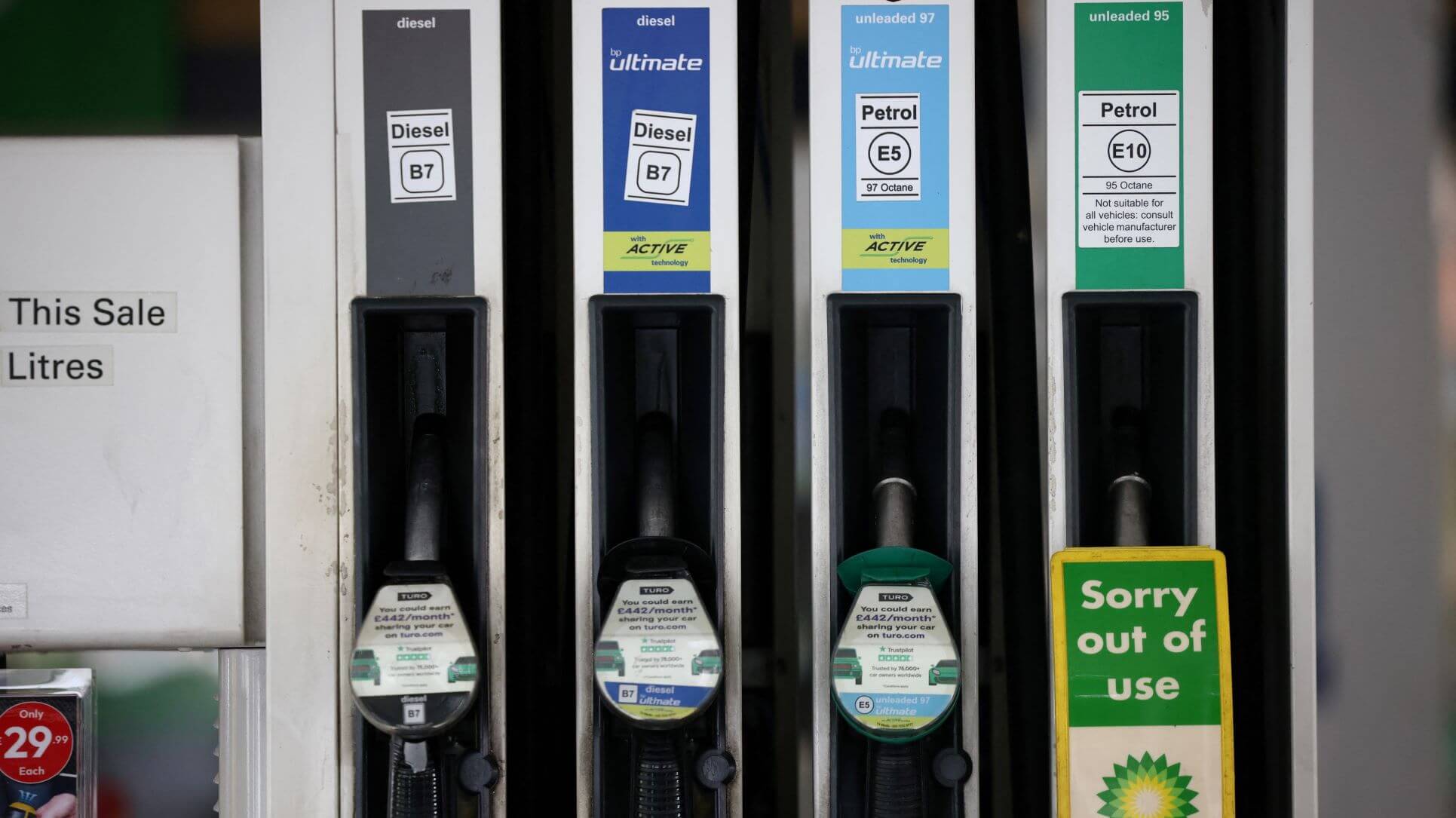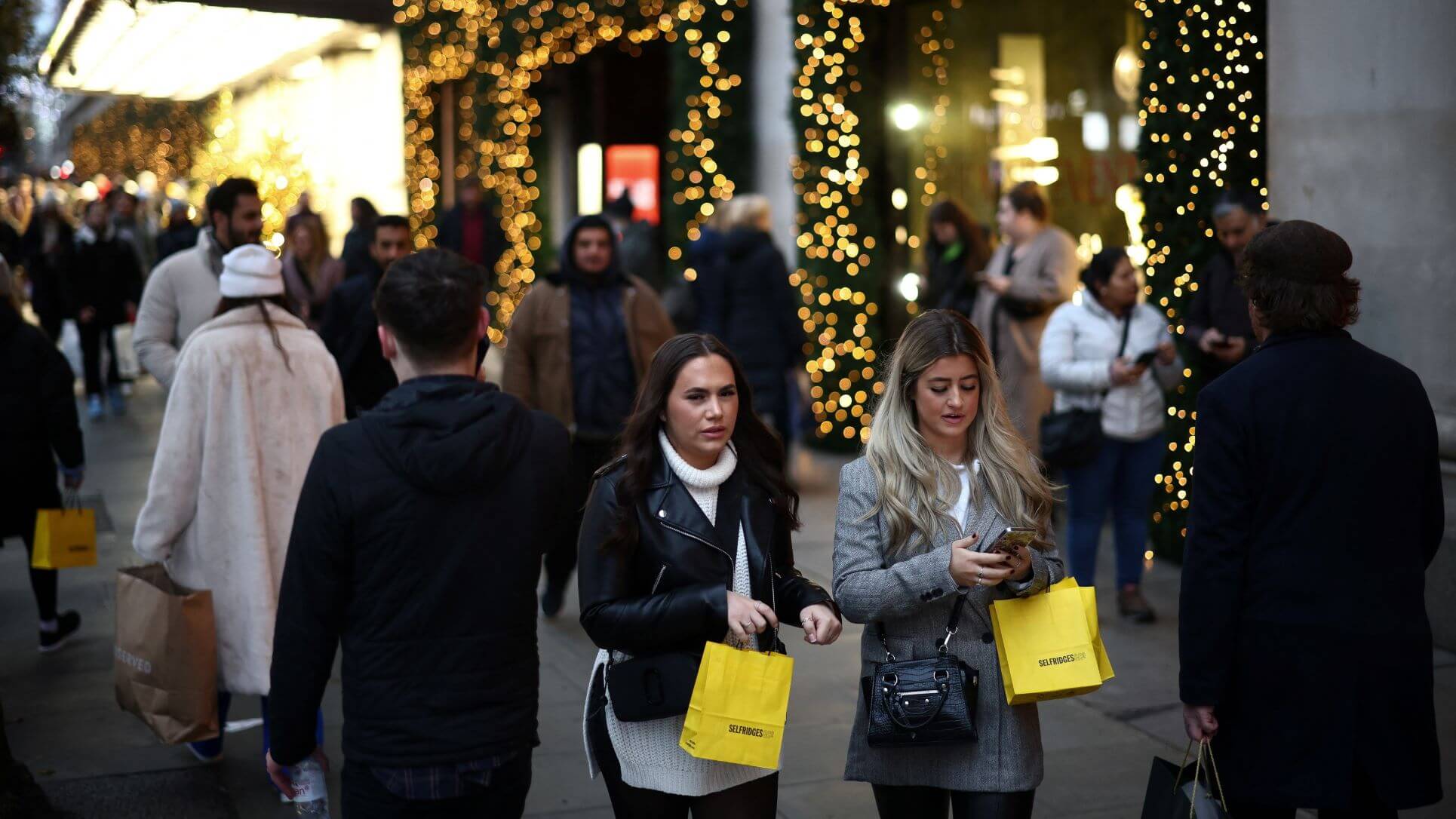Prices for vehicle fuels and lubricants dropped by 6.8% in August, their largest monthly fall since April 2020.
UK Inflation Falls For First Time In Nearly A Year
Prices for vehicle fuels and lubricants dropped by 6.8% in August, their largest monthly fall since April 2020.

Lower fuel prices caused an unexpected fall in British inflation in August, official figures showed on Wednesday, offering some respite to households and the Bank of England after inflation hit a 40-year high the month before.
The annual rate of consumer price growth fell to 9.9% in August from 10.1% in July, its first drop since September 2021 and below economists' expectations in a Reuters poll for it to rise further to a fresh high of 10.2%.
Sterling weakened on the news, but economists said they expected inflation to rise further later this year, and that the Bank of England would still have to raise rates next week after postponing this week's decision after Queen Elizabeth's death.
"Overall and core UK CPI inflation haven't peaked yet. As such, the Bank of England will have to continue turning the screws," said Paul Dales, chief UK economist at consultants Capital Economics.
CPI rose by 0.5% from July to August on a non-seasonally adjusted basis - below economists' forecasts for it to rise by 0.6%, the same pace as the month before.
Prices for vehicle fuels and lubricants dropped by 6.8% in August, their largest monthly fall since April 2020.
However, Britain is still battling the highest inflation among the world's seven largest advanced economies, although some EU countries - including the Netherlands and Spain - have higher rates.
Natural gas prices have surged across Europe following Russia's invasion of Ukraine, even in countries such as Britain which imported very little.
Interest rate futures show a 79% chance that the BoE will raise rates by 75 basis points to 2.5% on Sept. 22, which would be its biggest rate rise since 1989, excluding a brief attempt to bolster sterling during a 1992 exchange rate crisis.
The BoE's task of returning inflation to its 2% target has been made slightly easier, in the short term at least, by new Prime Minister Liz Truss's decision to cap household energy prices, which had been due to rise 80% in October.
Before that, inflation had been at risk of exceeding 15% early next year, according to some economists.
Capital's Dales said he now expected inflation to peak at 11% in October, when the cap takes effect - below the BoE's forecast last month of a peak above 13%.
Separate factory cost and selling price data brought good news on inflation pressure in the pipeline, being weaker than all forecasts.
Input prices for materials and energy fell 1.2% in monthly terms in August, the first fall in two years and driven by falling crude oil prices. Factory selling prices also fell slightly on the month.
Core CPI - which excludes food, energy, alcohol and tobacco prices, and which some economists think gives a better steer of long-term price trends - picked up to 6.3% from 6.2%, its highest since 1992.
(Reporting by David Milliken; editing by William James and Toby Chopra)
Thanks for signing up to Minutehack alerts.
Brilliant editorials heading your way soon.
Okay, Thanks!

